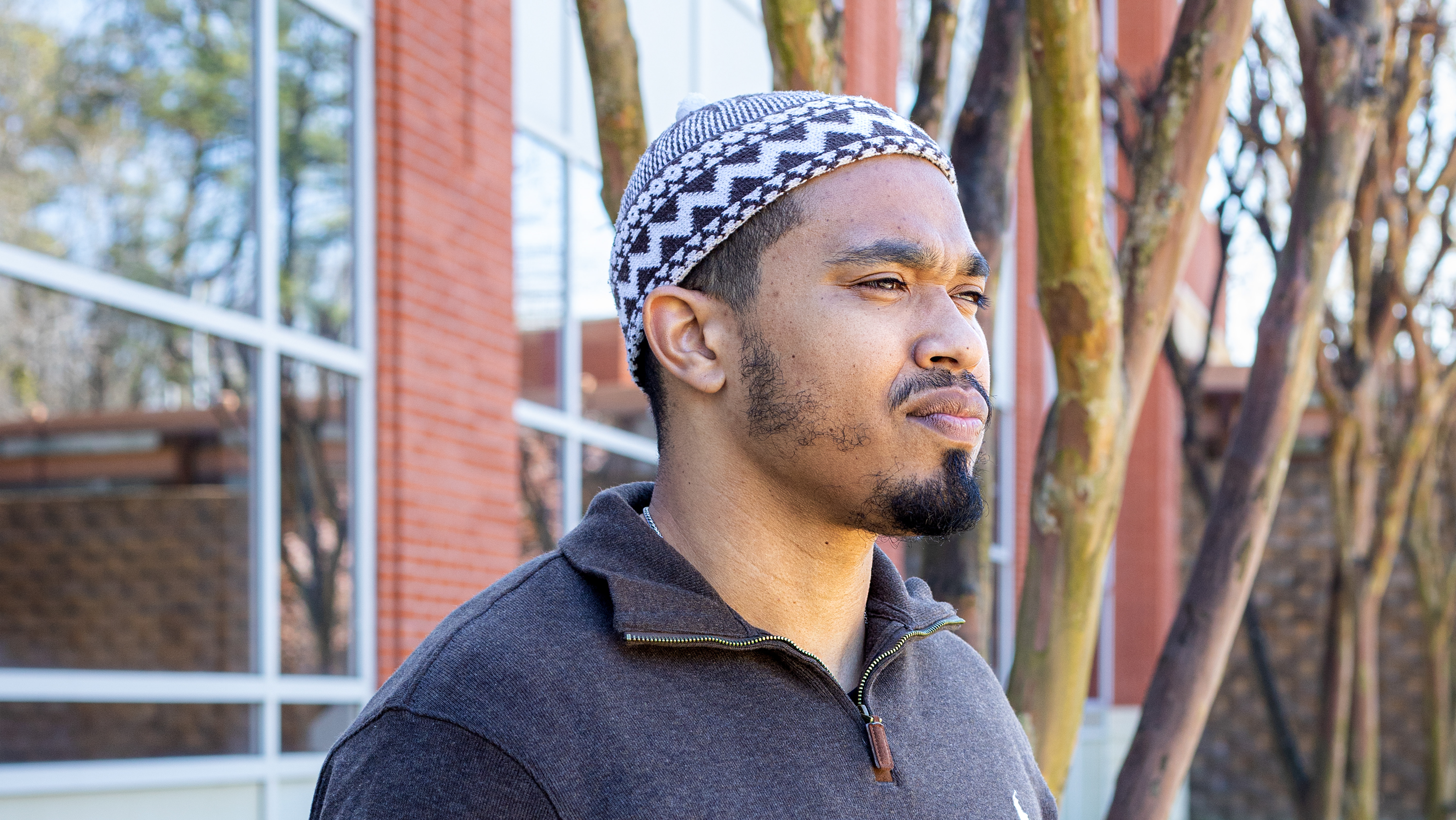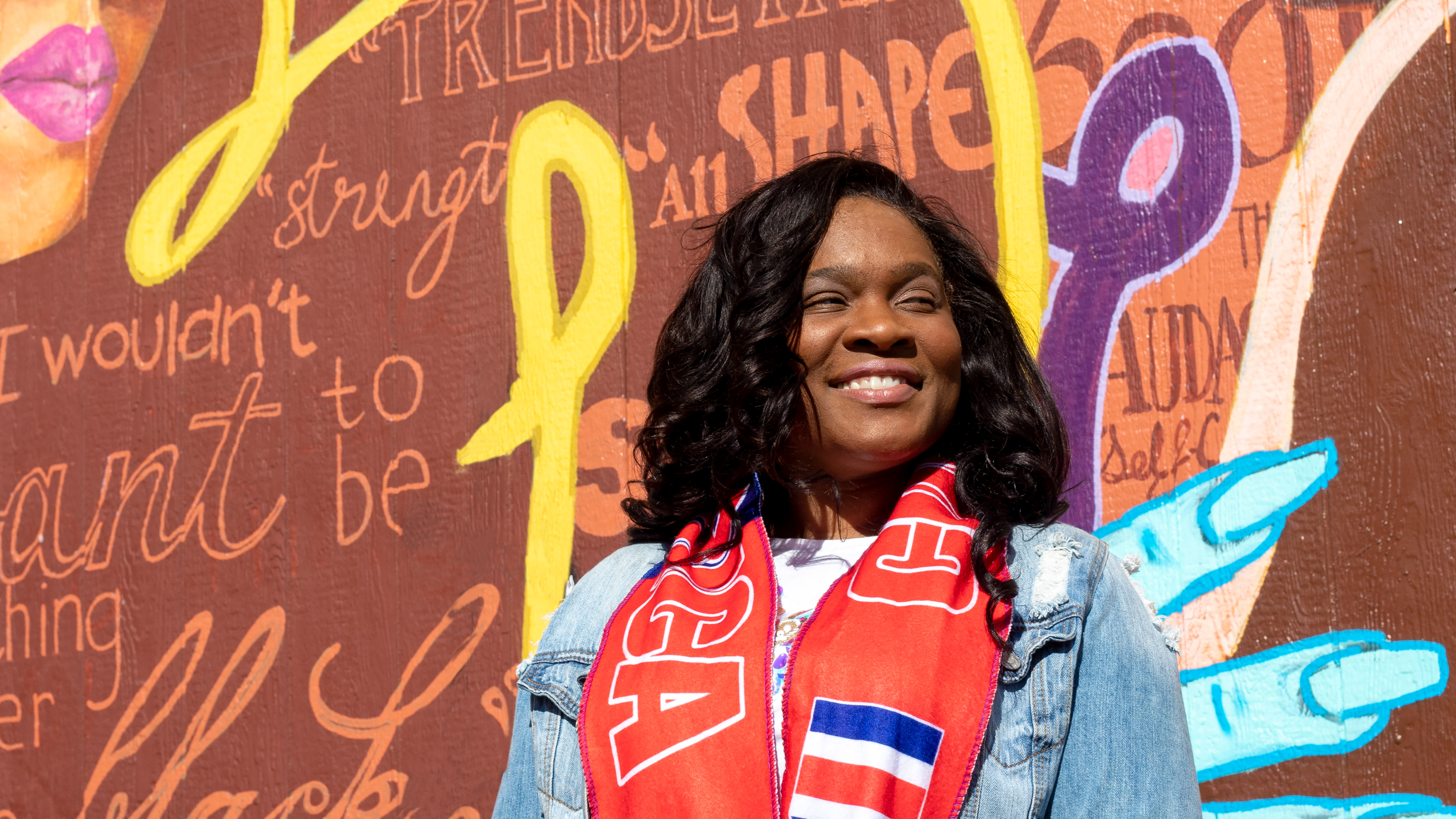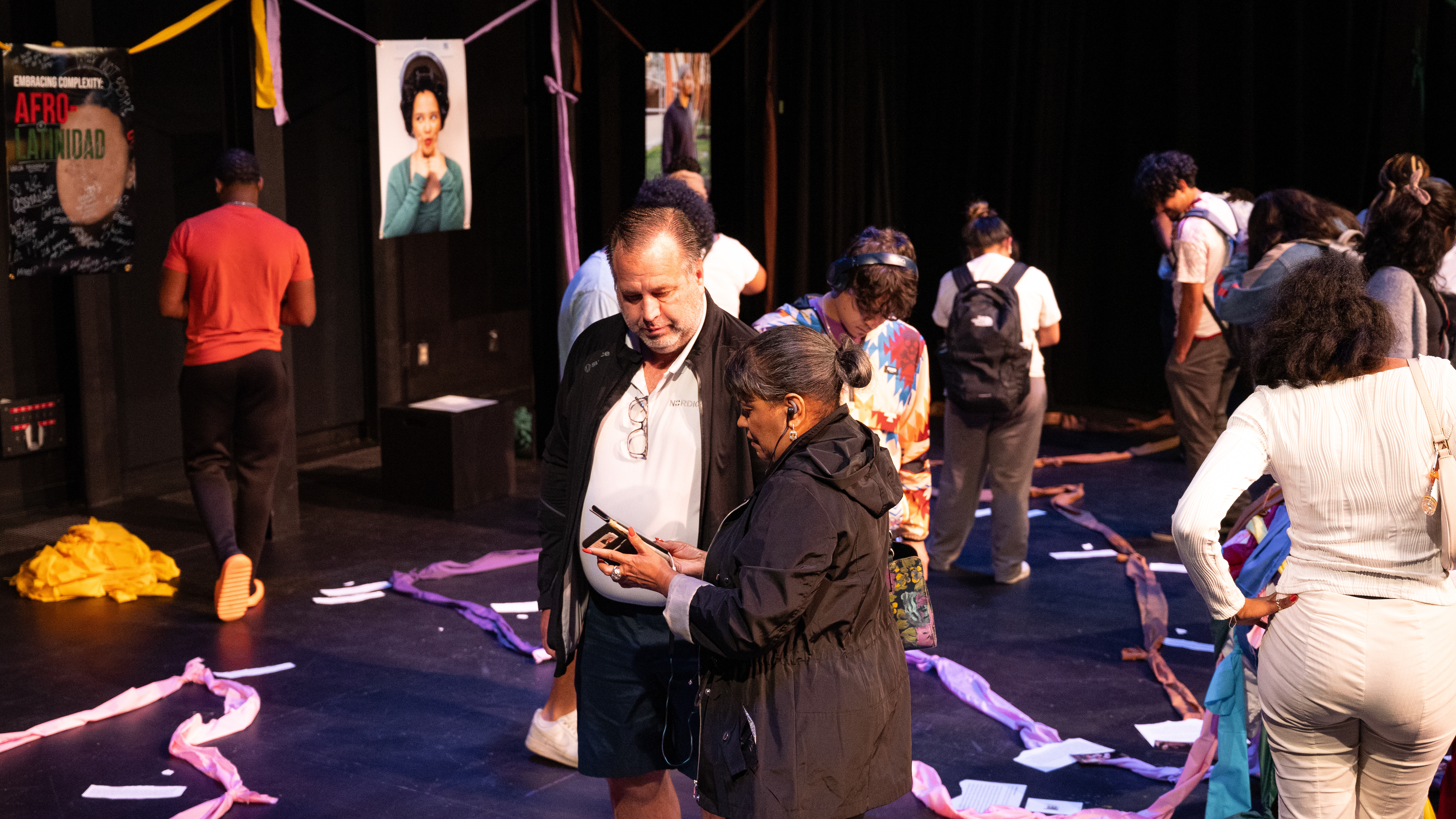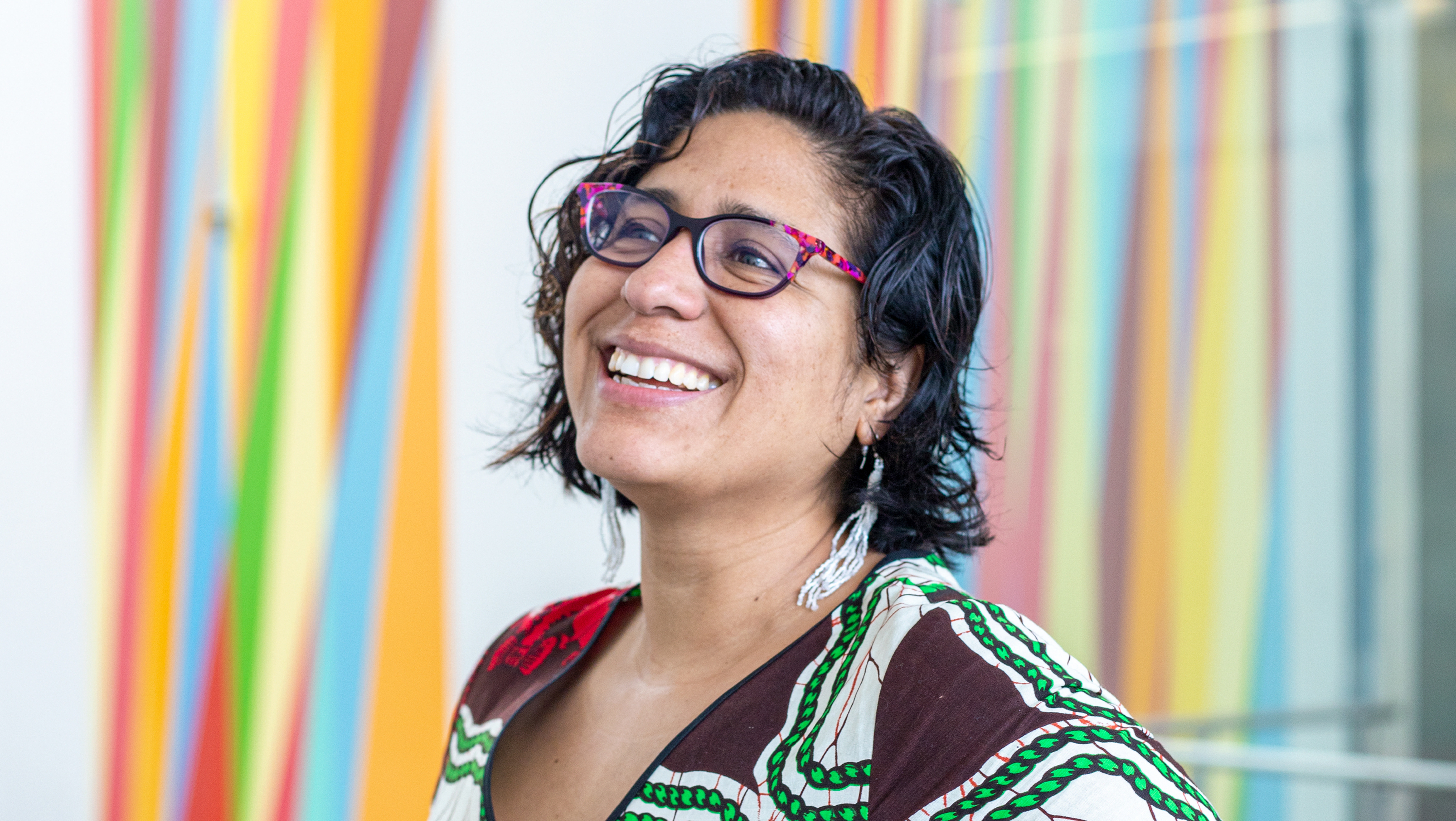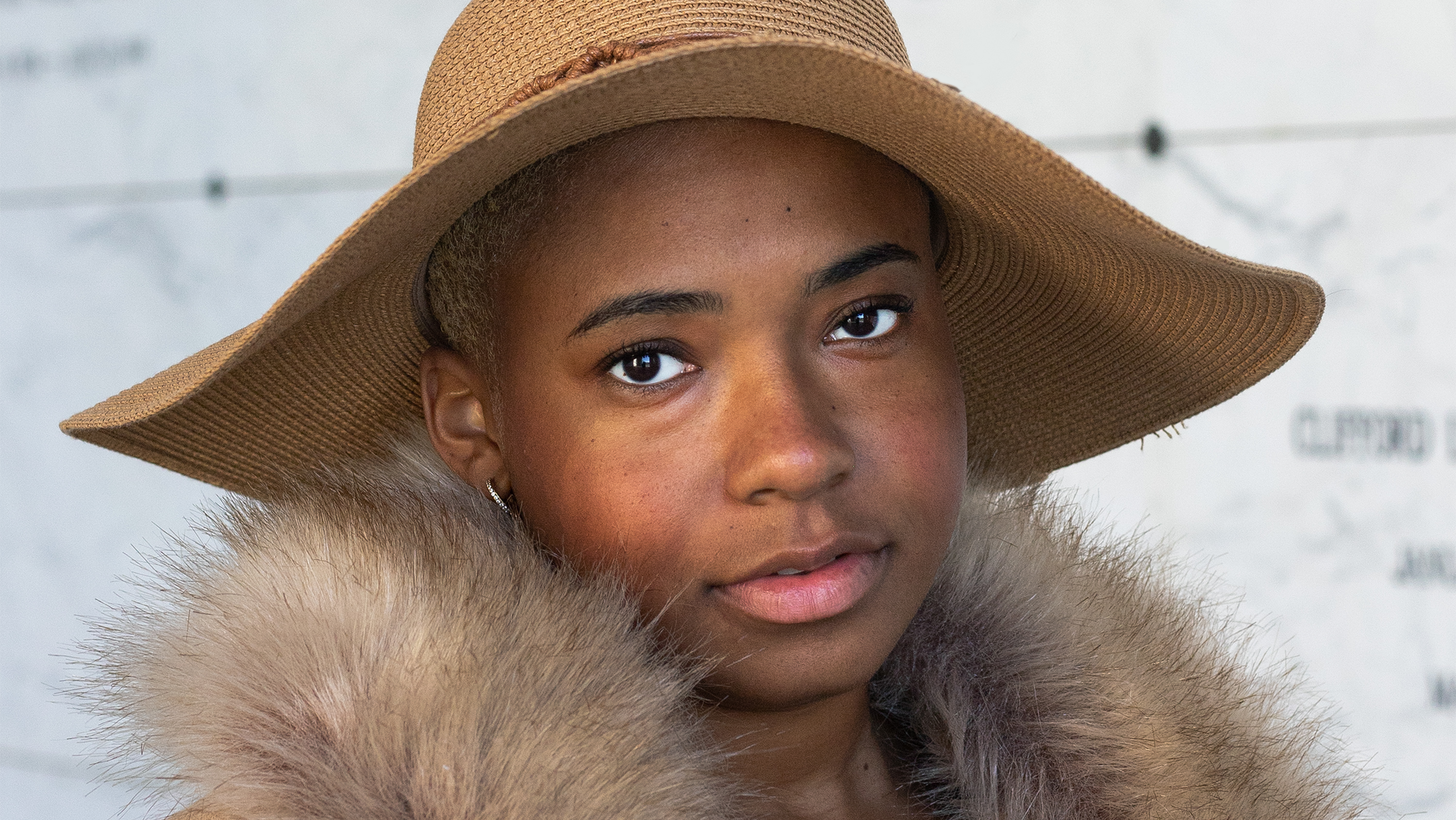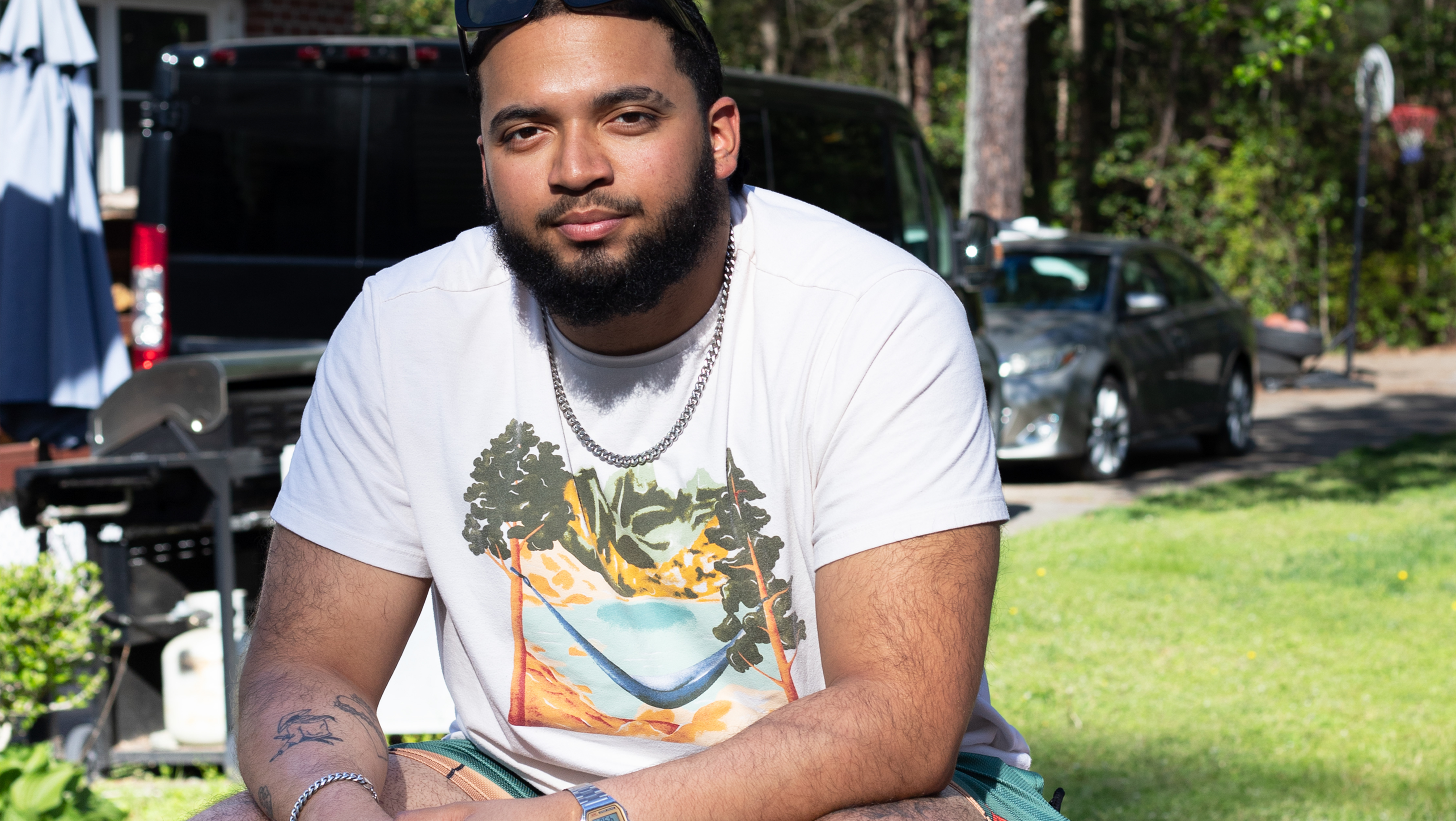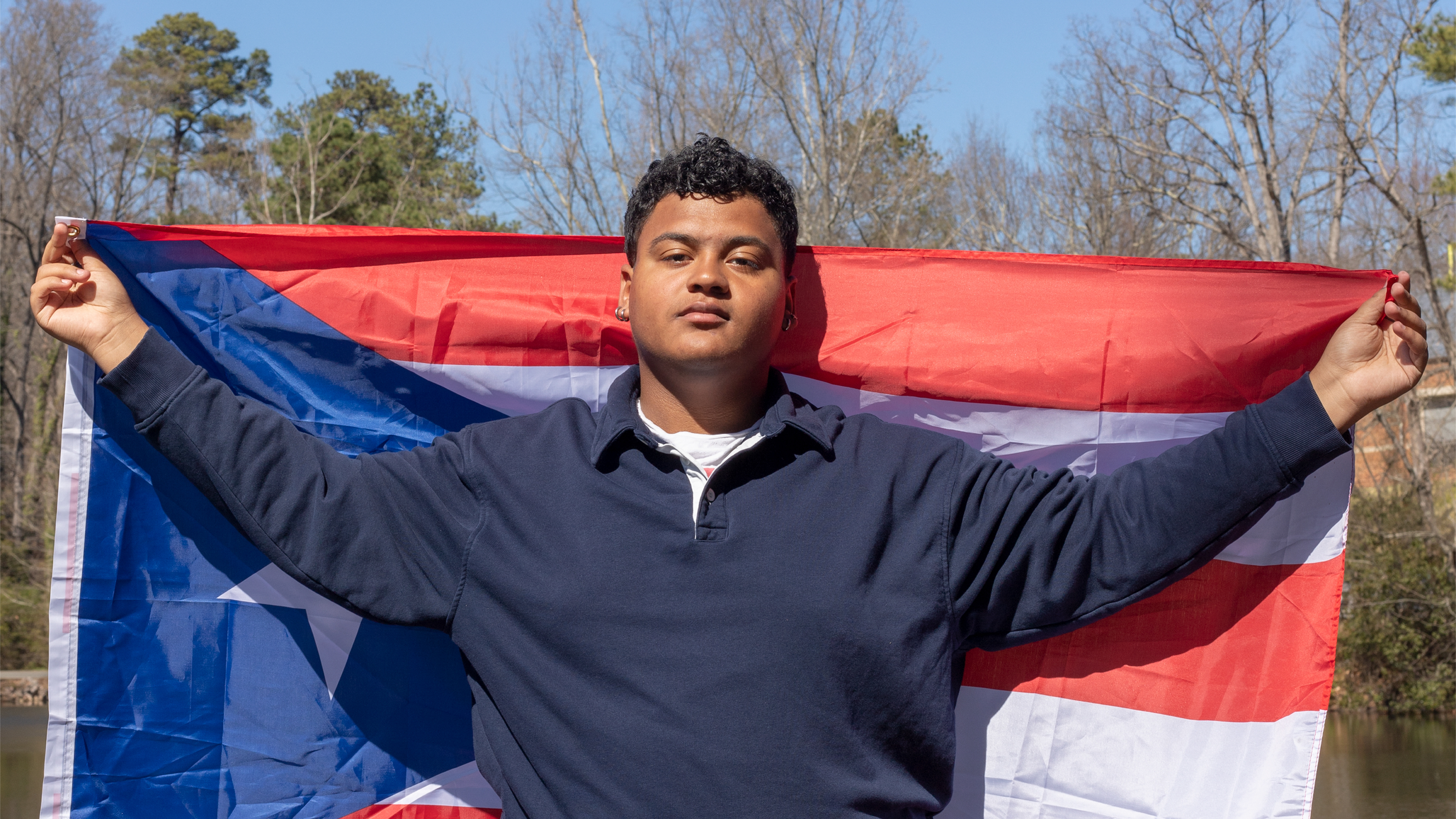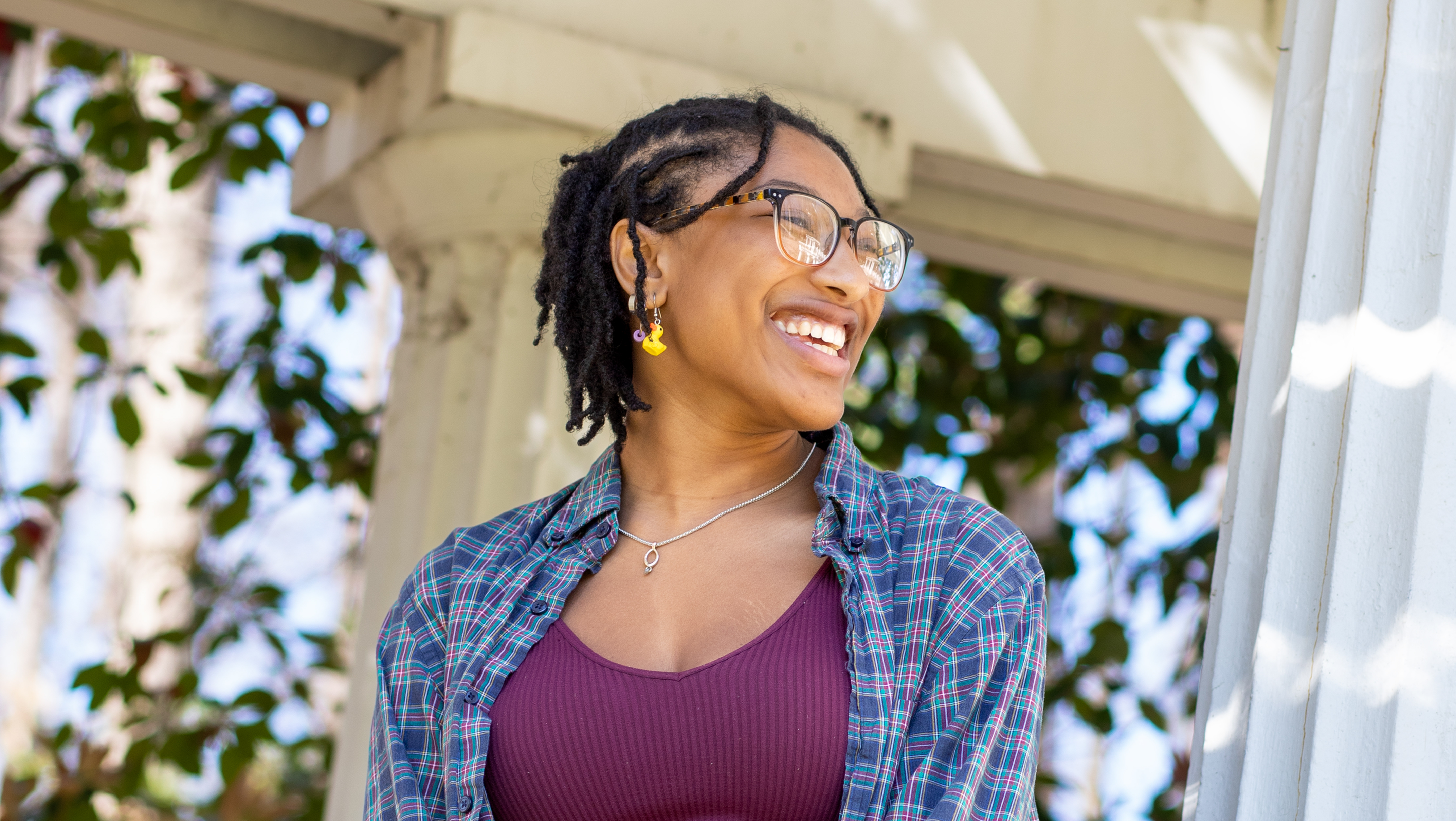Anita Nadal at her VCU office. Behind her is a project she developed with a grant from VCU’s Center for Community Engagement and Impact titled Heroes (Heroes) of Color Community Engagement Service Learning. “After learning that one of the Richmond Public Schools had an overall graduation rate of 64% with a large number of Latinx student dropouts, she created mentorship opportunities with VCU students who look like them and have been through similar experiences.
I went to school in Puerto Rico from the fourth grade all the way to my first year of college. So my experience was more Latina, right? Growing up I was just Latina. I never questioned that until I came to the states. I was in my twenties and studying in St. Louis, Missouri. Because I had a thicker accent, the white and black people would look at me and ask “what are you?” – It was at that point that, you know, I had to think about my race and ethnicity. And then it was the first time in my life that I was called the N word... I was crossing the street at a mall, and this guy said, “Hey! n word, get outta the street.” It was horrible.
I grew tired of explaining and I would just say I was black, and I left it at that. But then leaving it at that left me with a lot of pain. It's like, okay. So in order to fit in I'm having to essentially deny a very important part of who I am. When you say black in the US, it’s really African-American, They don't allow for nuances at all. When you're in your twenties you want so much to fit in. You want so much to belong, right? You don't wanna be the other. So you assimilate.
That pain grew too strong to bear and I had to stop. It was wrong to deny that part of my rich heritage. I learned how to stand up for myself… and then I didn’t really come into my Afro-Latinidad until I was 40 years old. I was growing tired of the business world and I decided to go back to college. My father was an educator, so was my mom, so I decided to get my master's degree at the University of Richmond. This is where the light bulb went off for me. Through education, through associating with people like Patricia Herrera and Copra Rivera who were much more knowledgeable doing this type of identity research, I found Afro-Latinidad. Then add on the release of the Afro-Latino Reader [by the late Miriam Jiménez Román and Juan Flores] things just began to click.
When I visited the National Museum of African American History and Culture one of the things that I learned is that people were not even referred to as black until slavery. Slavery started putting everyone in the category of black and you know, lumping everybody under the category of just black, it…it is a form of erasure. It's totally denying all these individuals of their history and culture.
Audio Clip from my conversation with Anita where she describes the importance of her project "Heroes (Heroes) of Color Community Engagement Service Learning" (5:13min)

